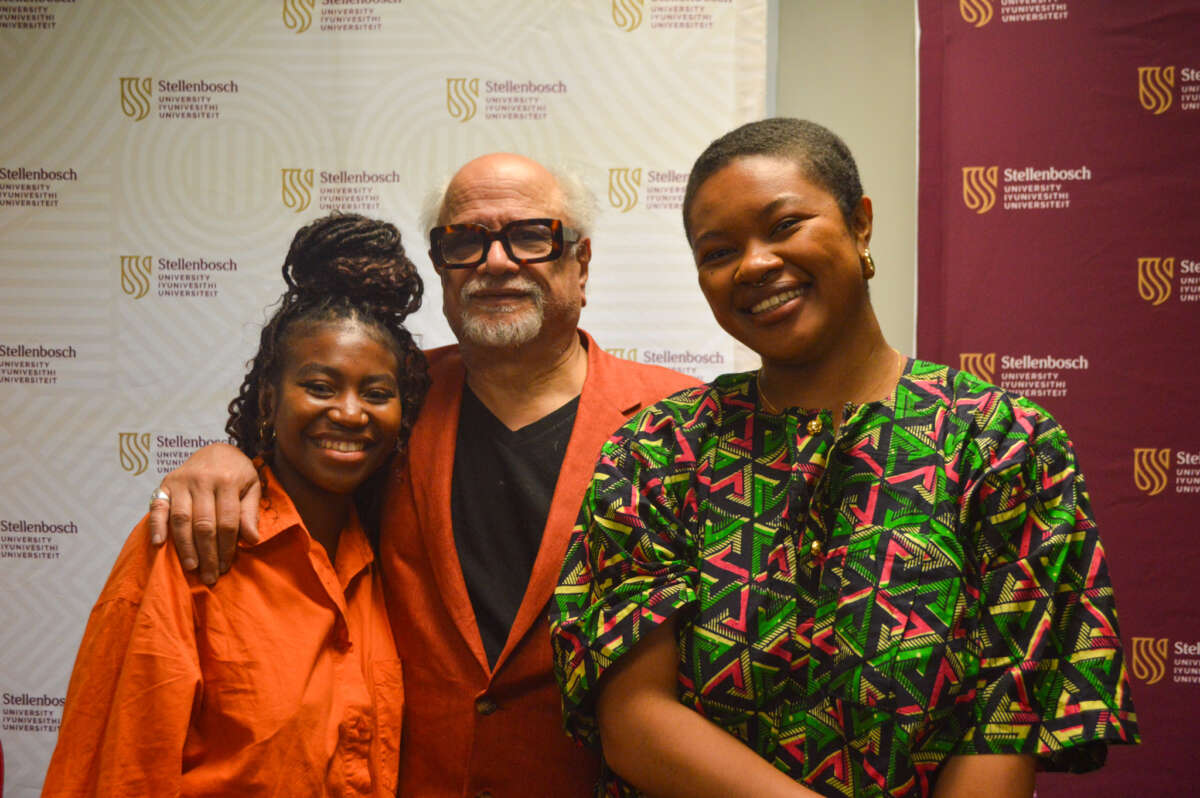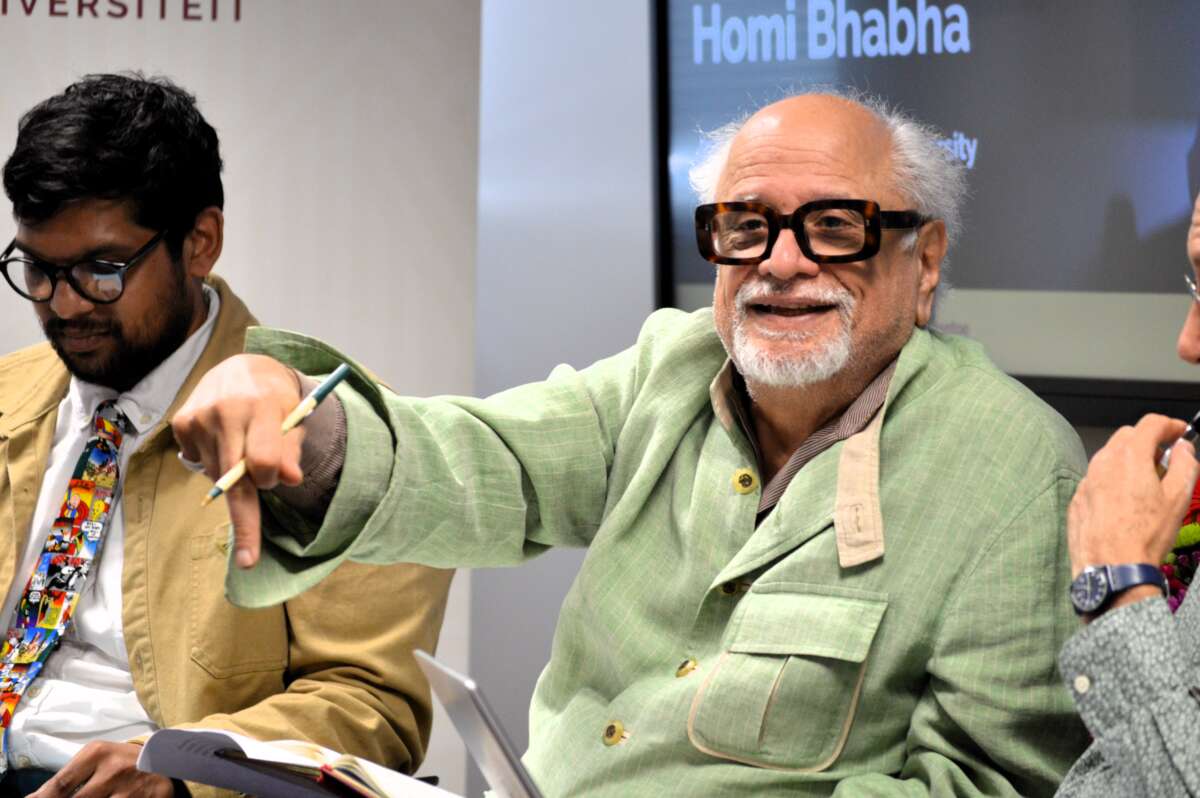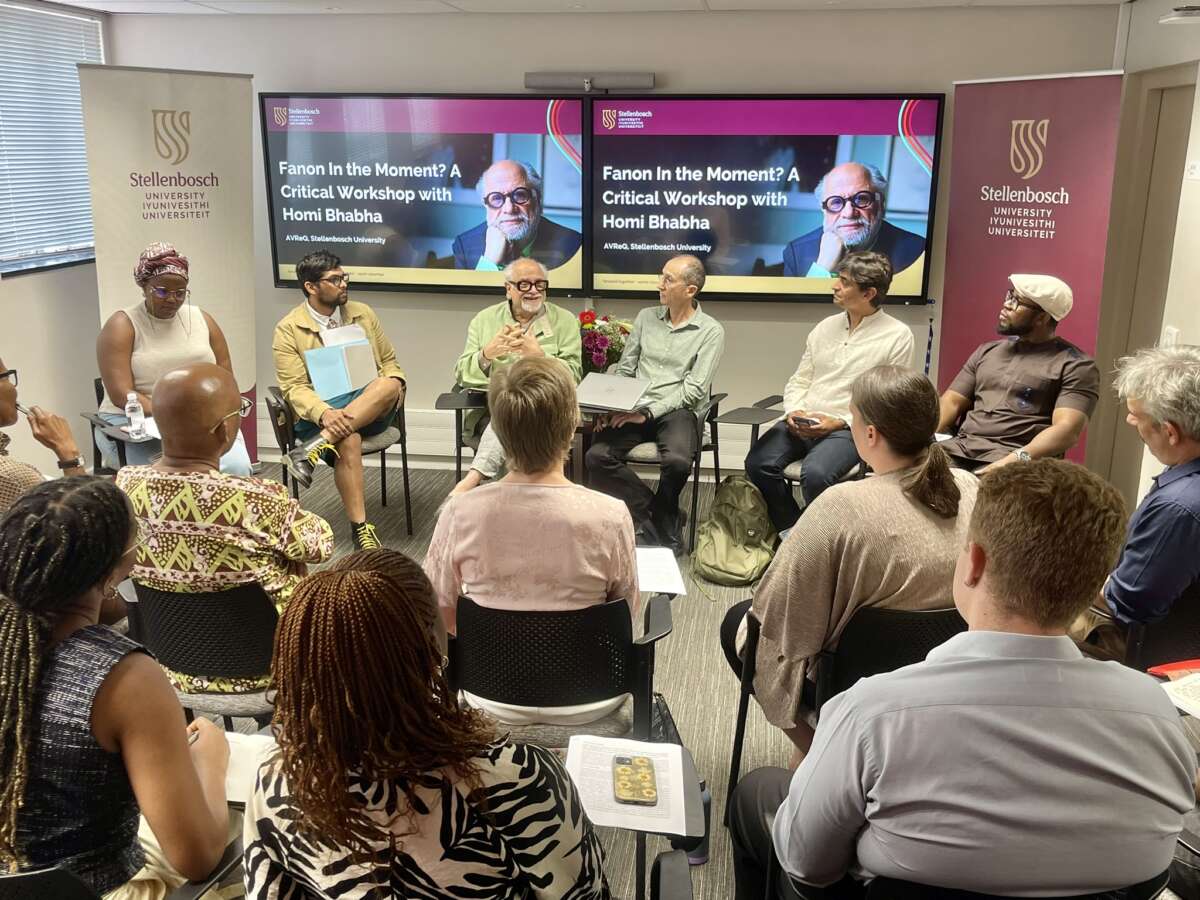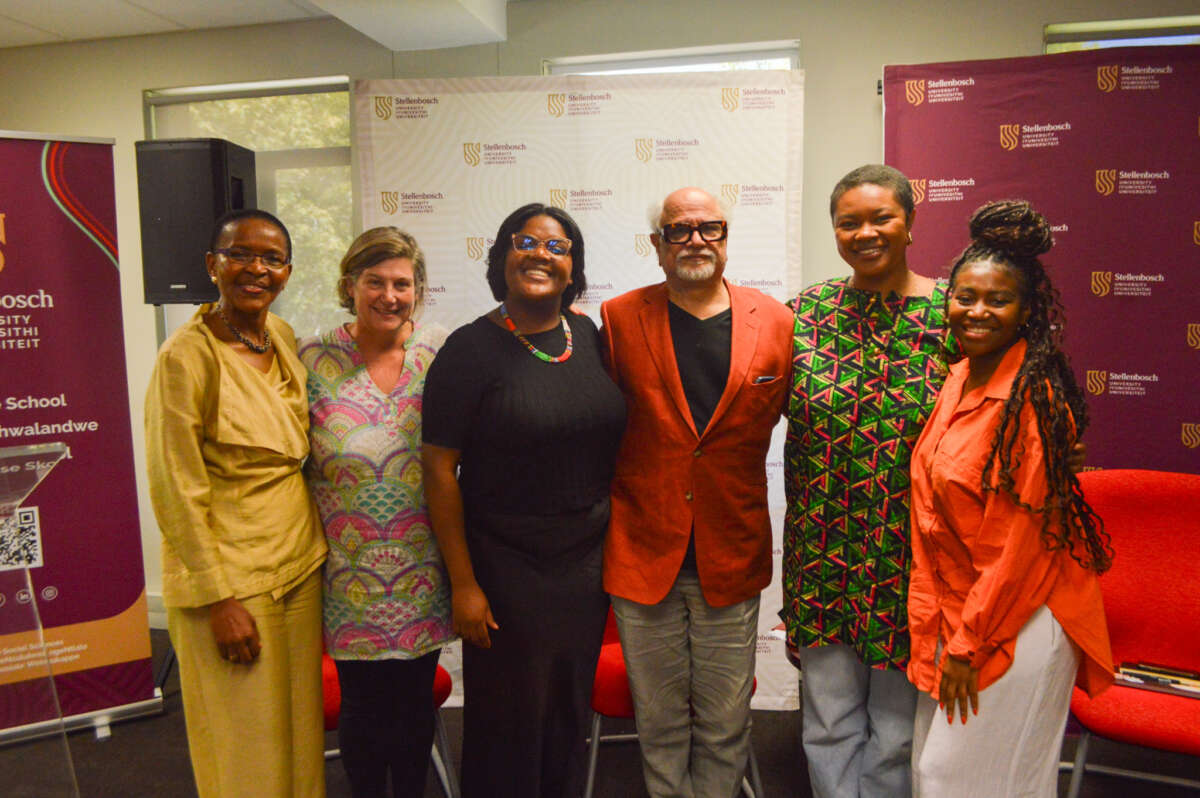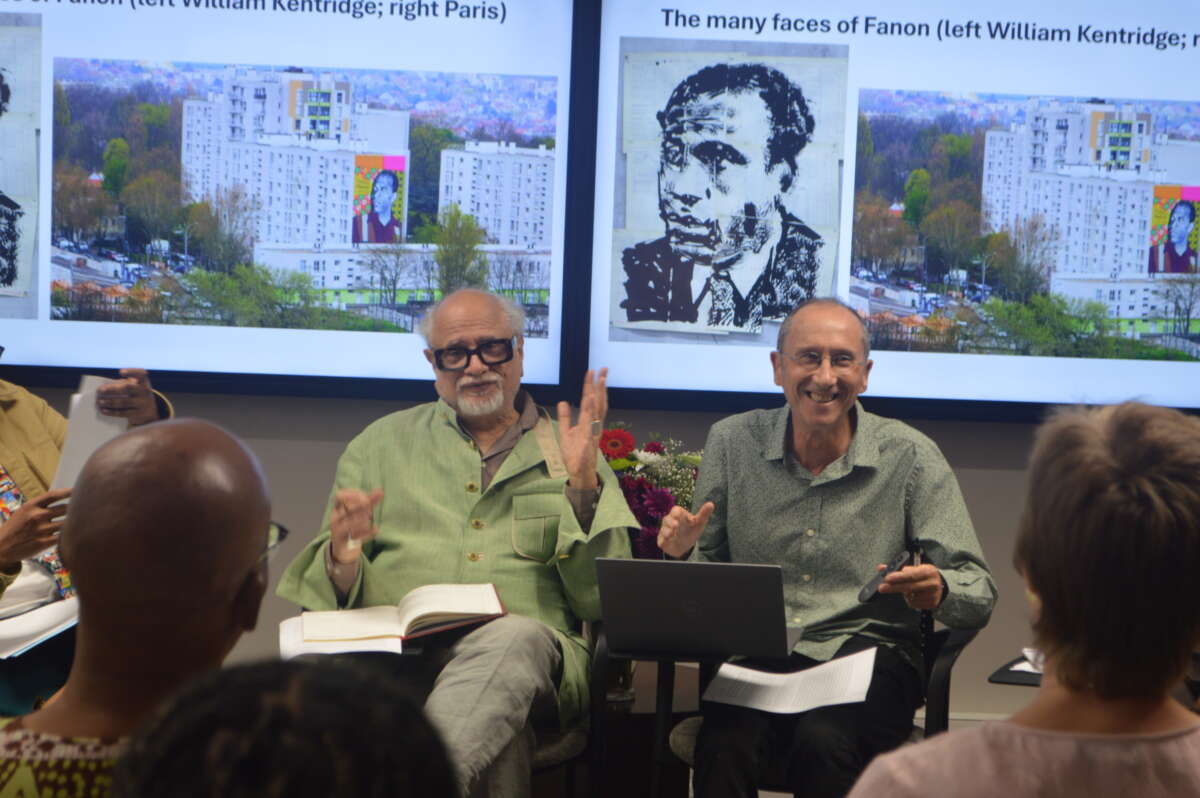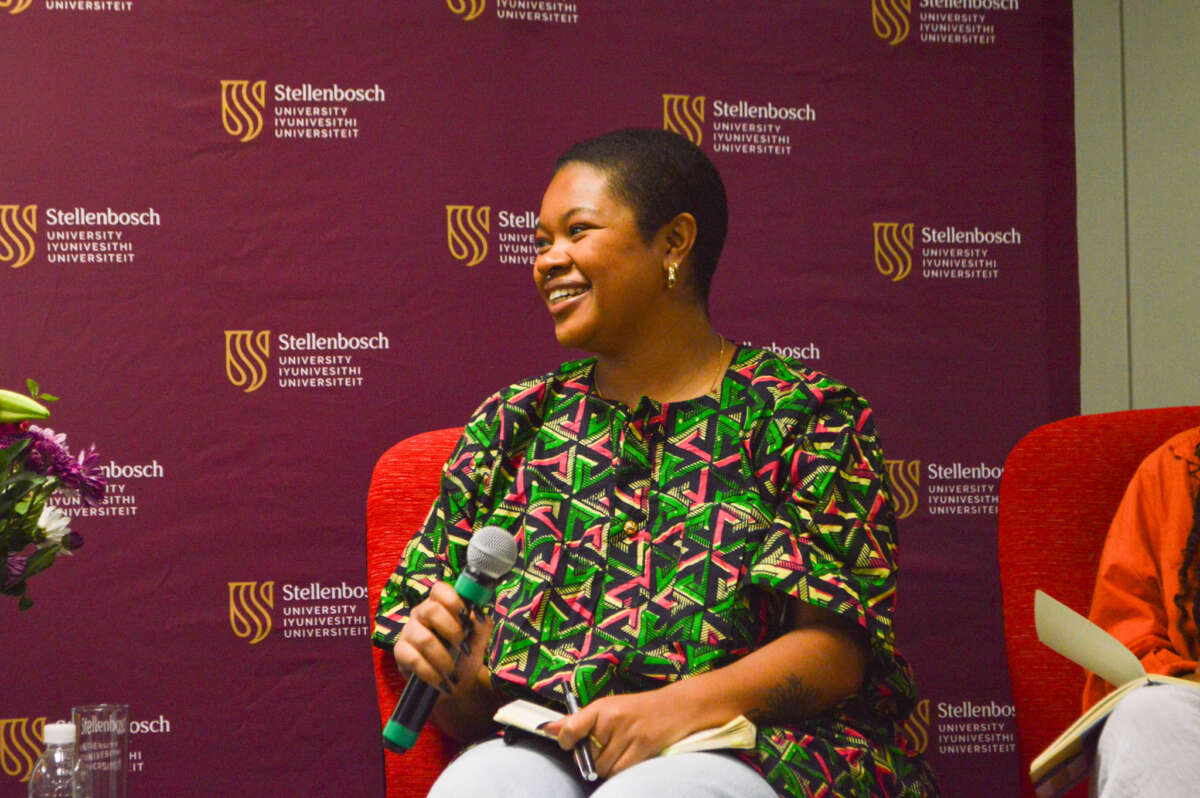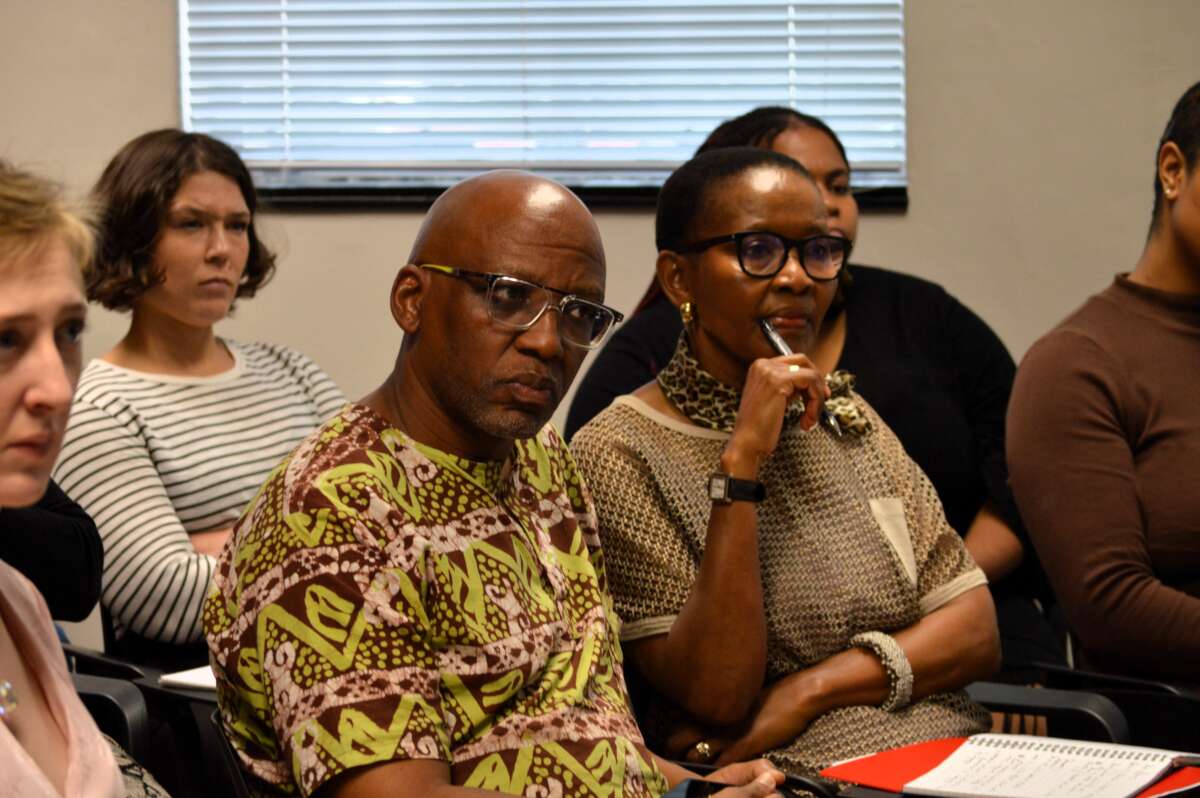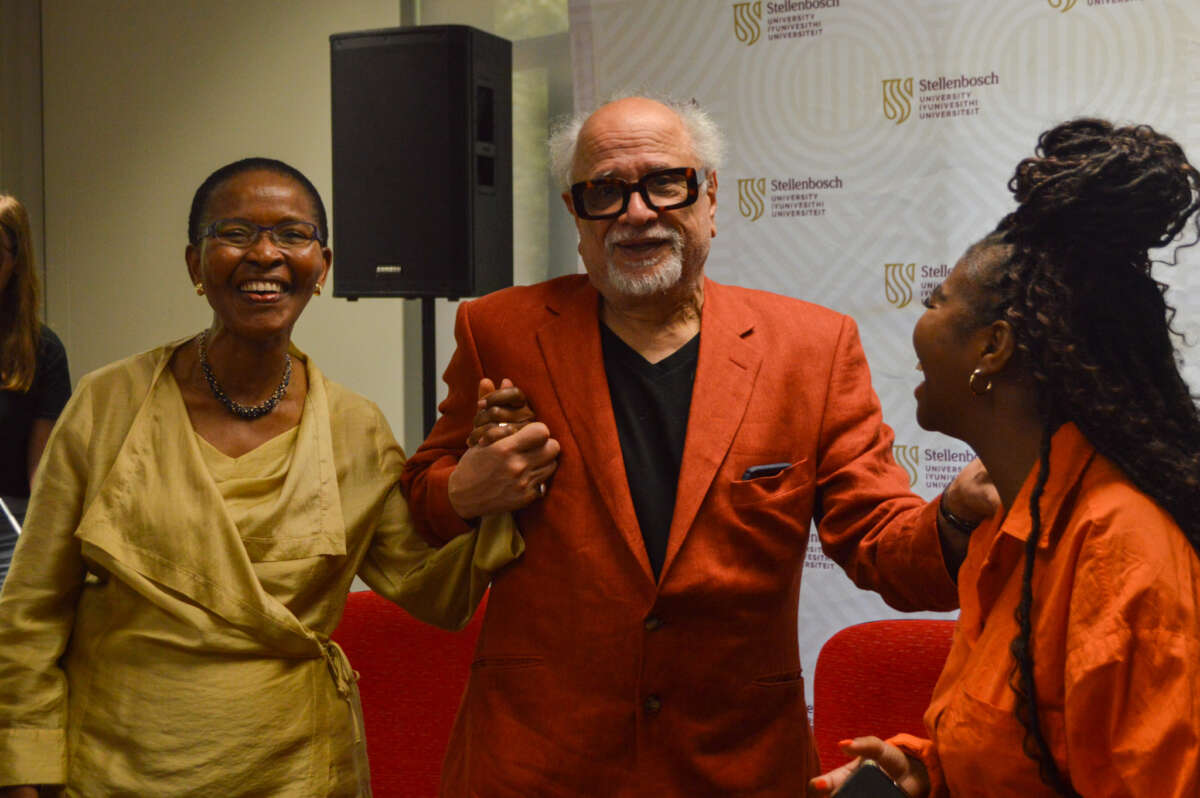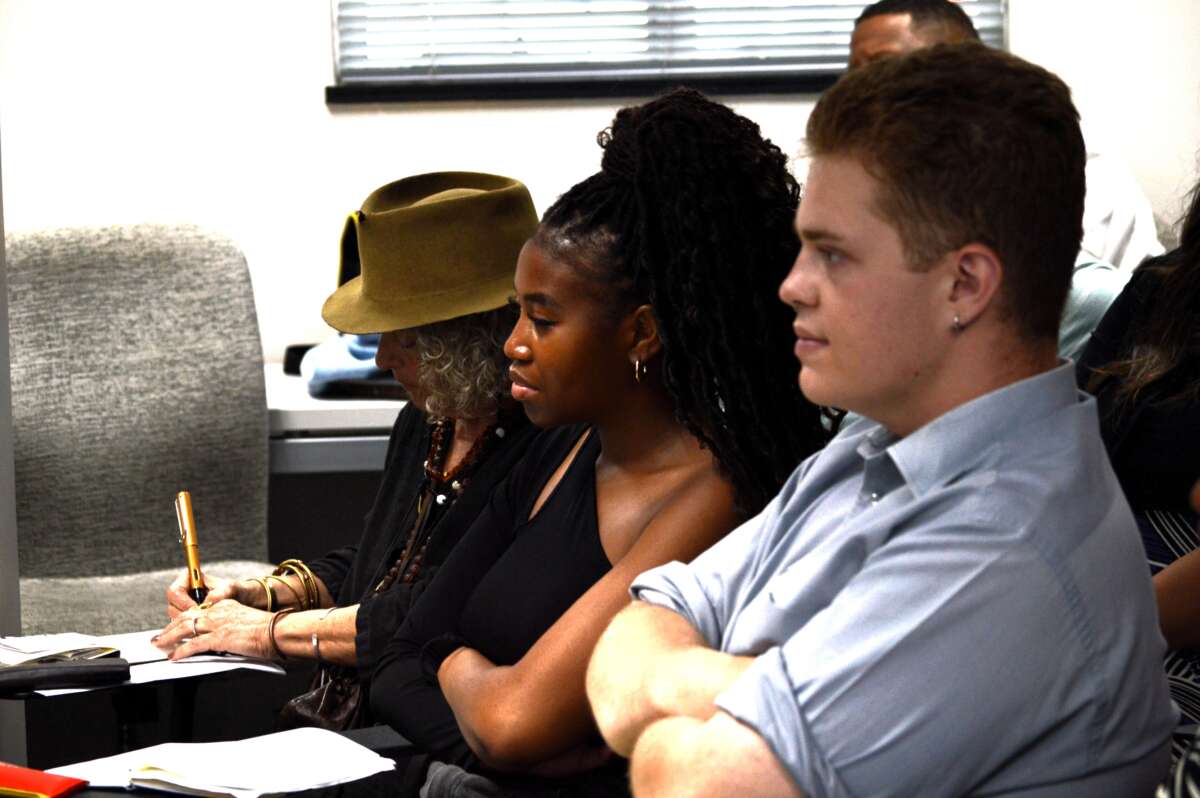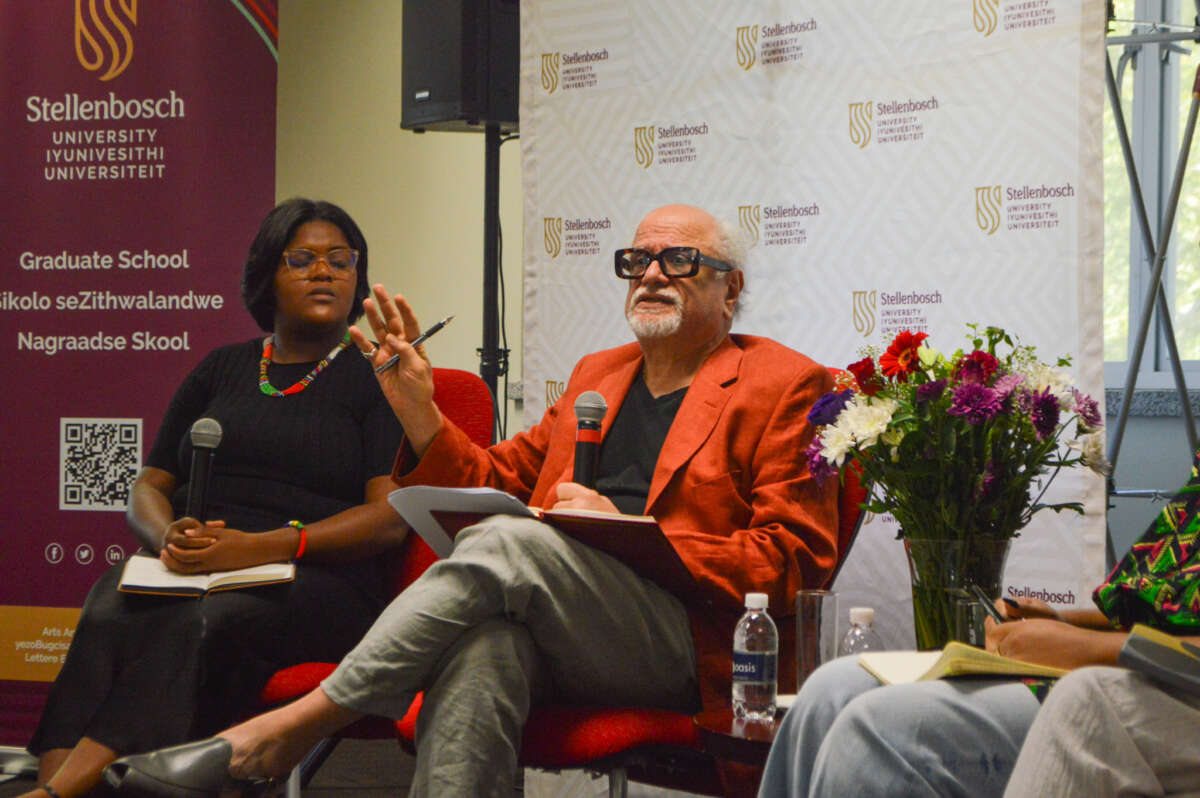From 12 to 14 March 2024, AVReQ hosted a masterclass series led by Professor Homi Bhabha in which participants engaged with the work and legacy of Frantz Fanon. Through aiming to deepen participant’s understanding of Fanon’s seminal texts, the masterclass sessions provided a unique opportunity for critical reflections and explorations into the contemporary echoes of Fanon’s theoretical contributions. Beyond sharing invaluable insights, knowledge and expertise, Professor Bhabha engaged meaningfully with postgraduate students, early career researchers and scholars across the Stellenbosch University community. Moreover, Professor Bhabha’s visit not only enriched the academic discourse at the university but also fostered a sense of intellectual curiosity and dialogue among attendees.
Across each session, Professor Bhabha provided unique insights into Fanon’s writings, leading to thought-provoking and stimulating discussions. The first session, titled Demystifying Fanon: The Fact of Blackness in the Contemporary, was hosted in collaboration with the Graduate School of the Faculty of Arts and Social Science as part of the Theory 101 lecture series. The lecture series aims to encourage interdisciplinary collaboration and critical engagement with key theoretical concepts in the humanities and social sciences. Drawing on Fanon’s seminal work, Black Skin, White Masks, the first session of the series grappled with “The Fact of Blackness” in 21st-century African context. In the panel discussion, led by Professor Bhabha and facilitated by Dr Anell Stacey Daries, masters fellow Nwabisa Beja and doctoral candidate Ijeoma Opara explored the relevance of Fanon’s work in their own research. Moreover the panellist probed into the ways in which Professor Bhabha sought to evoke Fanon’s theoretical frameworks within his ongoing work. This explorative conversation insighted a renewed sense of inspiration and motivation to continue exploring Fanon’s influential theories. On 13 March, Professor Bhabha led a workshop in which panellists from across the Faculty of the Art and Social Sciences, read and discussed Fanon’s Black Skin, White Masks in greater detail. In this session, participants engaged in critical dialogue and analysis of Fanon texts, exploring their implications for issues of race, gender and identity in the post-colonial context. More broadly this workshop provided a platform for interdisciplinary exchange and collaboration among scholars and postgraduate researchers interested in the intersections between postcolonial theory and activism. In bringing together scholars and students from various disciplines, this workshop drew attention to how Fanon’s work continues the hold precedence and influence in the post-colonial context. The focus for the final day of the masterclass series was The Surrealism of Fanon: Montage and Social Dialogue. In this public session, hosted at the Stellenbosch Institute for Advanced Study, Professor Bhabha in conversation with William Kentridge explored the intersections between Fanon’s work and surrealist expression. For this session the audience witnessed a dynamic exchange of ideas on how the arts could be used as a tool for social dialogue.
The impact of Professor Bhabha’s visit extended far beyond the bound of the seminar venues. He’s engagements served as a catalyst for further explorations and transdisciplinary engagements with Fanon’s body of work.
